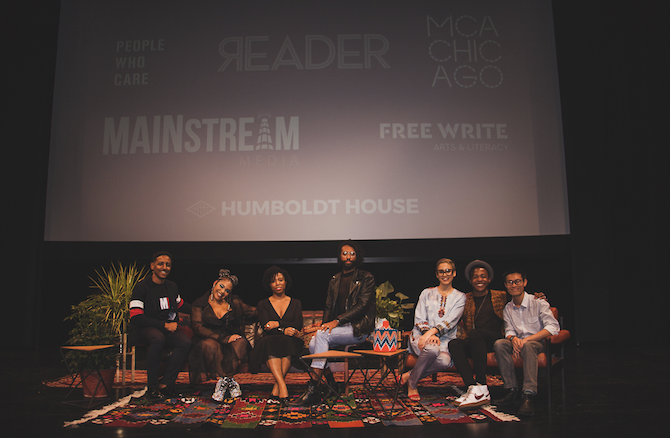CHICAGO -- Open Television (OTV), the diverse TV platform founded by Northwestern University researcher Aymar Jean “A.J.” Christian, premiered four original TV series at the Museum of Contemporary Art Thursday.
For the third consecutive year, the museum hosted a party to celebrate the OTV season with screenings of "Damaged Goods", "FOBia," "The Right Swipe" and "Good Enough," four of the original series OTV helped bring to life this year, a late-night-talk-show style Q&A with content creators and live DJ music sets.
This season, OTV will release over 25 pilot and series projects.
“We are happy to build a platform and pipeline where diverse voices feel empowered to tell their truths romantically, comedically and realistically,” Christian said. “We will continue supporting and developing artists as they become the next generation of desired storytellers and content creators.”
A platform for the development and distribution of television by and for queer, trans and cis-women, and artists of color, OTV was a springboard for the wildly popular, Emmy-nominated web series “Brown Girls,” a dramatic comedy about a queer South Asian writer in her 20s in Chicago that was recently acquired for possible development by HBO.
Christian designed OTV to acquire data on the value of small-scale distribution to intersectional communities historically excluded from legacy television development.
He is also the author of “Open TV: Innovation Beyond Hollywood and the Rise of Web Television,” which is a full study of web TV based on Christian’s experience working in and documenting this emerging art form and market.
In it, Christian argues that creators like Issa Rae and Katja Blichfeld, whose web projects have made the jump to primetime television, used the Internet to reach audiences that legacy television has historically discounted.
Christian’s objective in the creation of OTV, which marries research with artist and community development, showcases artists who identify with multiple identities marginalized by the market and society.
"The internet has opened up television and art markets beyond New York and Los Angeles," he said, "and OTV develops Chicago artists by helping them make and release original video and TV about diverse experiences online."
OTV is currently incorporating as an incubator, creating an unprecedented pipeline to bigger entities by managing, producing, and exhibiting original work.


